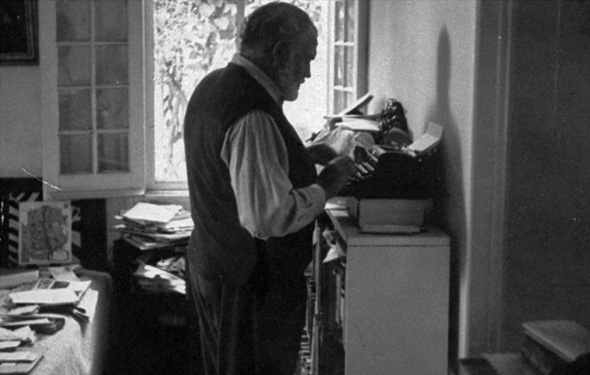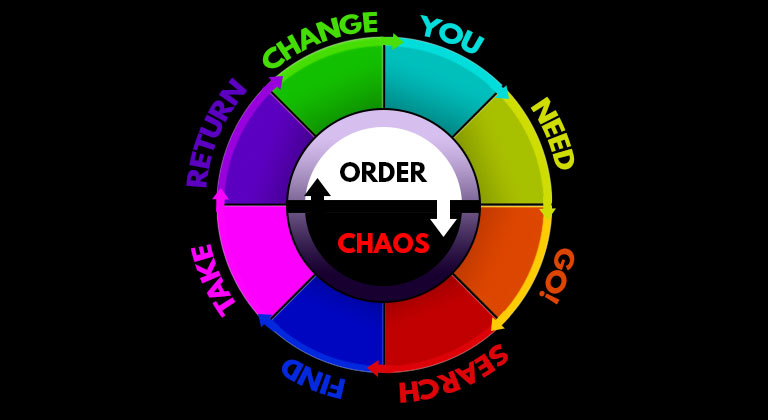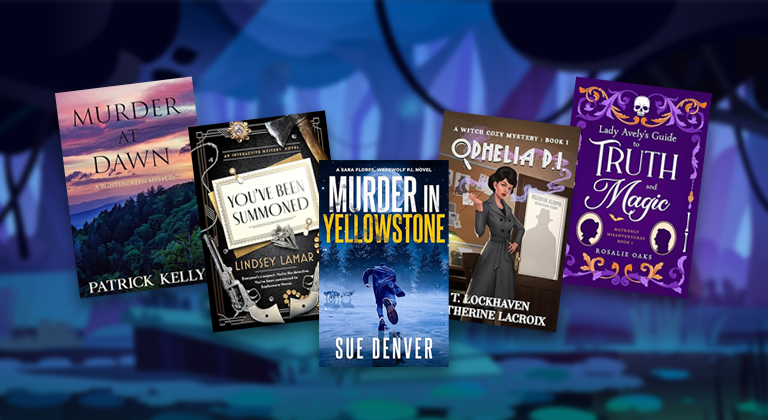Successful Writers Write
Despite all the marketing and promotion suggestions that we’ve provided in the past, if we could only offer a single piece of advice that would apply to authors everywhere, it wouldn’t be anything to do with getting reviews, or how to market your book, or even about where the best places are to advertise. It would simply be to keep on moving forward. Keep writing that next book, keep to a publishing schedule, and eventually success will find you.
There’s one reliable path to writing success – but it’s a lot of hard work! Whatever you do, just keep writing!
When I speak to writers 1-on-1 with advice and tips on their advertising strategy, a lot of them are surprised by what I always feel is the most important factor – to just keep writing. Authors who write and publish on a regular basis are more successful than those who don’t. Fact.
In fact, I’d argue that if you ever want to entertain the idea of turning writing into a living, that’s the first and most fundamental strategy you need to embrace.
Harper Lee might have become a world-famous author having written just one book, but before To Kill a Mockingbird went on to sell over 30 million copies, Harper Lee was given a whole year’s salary as a gift by a friend (oh, to have friends like those) with a note that read: “You have one year off from your job to write whatever you please.”
Since most of us don’t have that luxury, we need to go to work!
A Writer Writes
In the 1987 movie Throw Momma From the Train, author Larry teaches aspiring writers at a local community college and instills in them the mantra of ‘a writer writes.’ And that’s good advice. If you’re a writer, the first and most fundamental thing you need to do is write. That’s what writers do. Farmers farm, sailors sail, and writers write.

If you’re anything like me, though, spending time at the keyword isn’t always as straightforward as you’d like it to be. Family, work, and even our own procrastination and distraction can prevent us from actually putting words to paper. This is why I’ve stressed the importance of logging your word count and writing your routine.
Beyond just the practical – you’ll never finish your novel if you don’t write the damn thing – there are other benefits to writing everyday; including the fact that the more you produce and publish, the more successful a writer you’re going to be: Fact.
All of the greatest authors (Harper Lee being an infuriating exception) are prolific. Stephen King has written more books following his ‘retirement’ than most writers do in a lifetime. James Patterson, Lee Child and other authors churn out books almost as fast as people can read them. I’ll admit that the secret of my own writing success in the romance genre has largely stemmed from writing and publishing an average of one new title every month.
There are myriad reasons why this is so important – but the first and fundamental one is the fact that the more books you have available for sale, the more people are going to buy them. Even if your books only sell one or two copies a month, you double and then triple that by writing books that are at least equivalently as successful.
The truth be told, though, you’ll do better than that – for a number of reasons.
The more you write, the better you’ll get
“We are all apprentices in a craft where no one ever becomes a master.” Ernest Hemingway
Readers of my blog posts might be sick of the Hemingway quotes by now, but a lot of them are really powerful and appropriate to writers who want to make a real stab at turning their writing into a career. It was the craft and narrative of Hemingway’s books that made him part of the lexicon of American literature, yet it was his focus and productivity that put him into the public eye in the first place. In short – he was successful because he wrote, a lot.
But, more than that, everything he wrote got better and better. Practice makes perfect – and Hemingway got a lot of practice.

The more you write, and the more you publish, and the more feedback you receive and absorb, the better your writing gets. Sometimes that improvement isn’t even in the narrative or prose, but in the clarity of your plot, the characterization of your main characters, or even just identifying and focusing on the formula that makes your books uniquely successful. It’s basically a real-life version of the old allegory of the pot makers – you know, the one about the two groups of pottery students? One group got tasked with producing the single best vase they could, while the other group was tasked with producing as many vases as they could. In the end, the group that was tasked with producing the most vases also produced the best one, because they got so much more practice.
The more you write, the better a writer you become; and the more you can own that identity. If you’re still working on the same novel you started in college, you might consider yourself a ‘writer’ but you probably also have a day job. If you write and publish six novels a year, nobody can argue that you’re a writer (even if you also have a day job.)
If you’re a writer, you write. If you’re serious about writing, you improve. Improvement only comes by writing more.
The more you write, the more readers you’ll get
Even if you don’t write in a popular genre, and haven’t got much of a fan base yet, the more you write and publish, the bigger your writing career will grow.
It’s just a numbers game, really. Even with the most dire marketing and promotion, and a complete lack of understanding of how Amazon works, you’ll almost certainly find yourself hitting a broader audience with each title you publish, because there’s simply more there for potential readers to discover.
In addition, Amazon has built in algorithms which support and encourage a more regular publishing schedule. The first month after publication is a magical time for authors, as Amazon pushes even the most obscure titles as ‘new releases.’ All of this gets compounded the more effective your launch strategy and promotion is – because in addition to learning to be a better writer, you’ll also learn to become a better publisher and marketer.
No, writing books regularly alone won’t turn you into the next Stephen King – not without a bit more strategy behind it than that – but you will find that your author name wriggles deeper into the labyrinth of Amazon’s algorithms because your new book will be linked to other recent titles in the also bought section, and also recommendations of similar works. Each subsequent book you publish links back to your author name and author page – so if your new book hooks a brand-new reader, they’ll have a trail of breadcrumbs to follow back to your previous books. Hopefully, they’ll read and buy those, too.
Writing, completing and publishing books is also a fantastic confidence booster for authors – because to actually see your books in (digital) print is just further reinforcement that you’re a writer – and the more you feel like a writer, the more compelled you’ll be to tell stories.
The more you write, the more money you’ll make
Likewise, even if you’re a brand-new writer and publisher, and your books are very unlikely to be counted among recent best-sellers – there’s still an advantage to having more of them out there for readers to enjoy. I don’t want to sound too much like a door-to-door salesman, but think about it this way – if you’re only selling one book a month, and you publish a second that matches those sales… you’ve already doubled your money!
On a more practical note – one proven route to a writing career is to simply write enough books to ensure a steady stream of income coming in each and every day. If your book brings in just a dollar of revenue a day, imagine this – having twenty of them! Twenty books making a cumulative $20 dollars a day is still over $7,000 a year in income, and by the time you’ve written and published twenty books, you’re very unlikely to be bringing in revenue that low.
Writing twenty full length novels is the sort of commitment only a few people are willing to make; and the kind of people who’d embark on that madcap journey can’t help but learn a few things along the way – like what sort of cover sells more books, what sort of blurb inspires people to click that ‘buy now’ button and – most importantly of all – how to sit down and just write a damn book from beginning to end.
Truth be told? I’m not suggesting you sit down and commit to writing twenty books. Most of us have families, friends, or seasons of Stranger Things to catch up on. However, I do argue that anybody who sits down and does make that commitment – writing twenty books, even if it takes them twenty years – will finish the experience a much more successful author than when they started. You can’t help it – it’s inevitable.
And that’s why a commitment to just keep writing is probably the single most important decision a writer can make, because if you’re willing to make that commitment to it – and stick to it, like going to the gym or eating right – you can’t help but make progress (or quit in frustration.)
Trust the Process
When it comes down to things like going to the gym, a piece of advice you’ll often hear is: “Focus on the process, not the outcome.” This is terrific advice (I know, because I used to be a lot chubbier.) The principle is not to make the commitment to “lose 20lbs by Christmas” but to “go to the gym every day until Christmas” – focus not on the outcome (the weight loss) but the process (go to the gym every day) you need to stick to in order to achieve the outcome.
The truth is, you’ll probably fail going to the gym every day – but as long as you try to, you’ll keep making progress. Every day you don’t fail to go to the gym is an accomplishment, and builds the discipline and habit to make sure you have fewer of those failures.
If you’re focused on just weighing in each day, you’re only focused on the results. You’re searching for victory without battle – and you’re looking at failure when you’re still 20lbs overweight by Christmas.
If you stop focusing on the details you don’t have control over as an author – like just how many people choose to buy your books on a Tuesday, despite your best efforts at promotion and marketing – you can focus on the details you can control; like writing more. If you make that commitment to writing, and you publish on a regular basis, your writing career can’t help but develop and evolve.
It’s not easy. I say this as somebody who has written well over a million published words. Some days inspiration doesn’t grab you. Some days, the kids and the dog (not to mention the wife) make it impossible to sit down and start tapping away at the keyboard. As somebody who is incredibly easily distracted (ooh, shiny) I know that I’ll often jump headfirst down the rabbit hole of refreshing my BookReport ranks, and obsessing about why my last book isn’t selling enough copies to finally let me move to the south of France.
I’m sure I’m not the only one who feels like this – and nobody can blame you if you do. It’s an incredible feat of time, effort and commitment to write even one full-length novel – let alone get a cover, editor and reviewers, and publish the finished product on Amazon. So, when your magnum opus isn’t performing like the love child of Jack Reacher and Fifty Shades of Grey, it’s incredibly disheartening… and easy to obsess about how to ‘fix’ the issue.
But, the truth is, the better use of your time is to simply focus on writing the next one… and then the next one.
You should always try to make your books the best they can be – but only to a point. As I’ve quoted from Sheryl Sandburg before: “Done is better than perfect.”
You’ll never earn royalties from a book you haven’t published yet – and if you keep publishing them, one after the other, they’ll get more and more successful.
It’s not Rocket Science
A couple of years ago, WrittenWordMedia.com collected data from 34,000 self-published authors, splitting them into two groups – those that made in excess of $100,000 a year in book royalties, and those that made less than $500 per month. The difference? Productivity.
Three things stood out. Firstly, that writers who earned over $100,000 a year wrote, on average, for about 33.5 hours per week, which was significantly more than the less-than-$500-a-month authors, who wrote an average of less than 20 hours per week.
Secondly, authors who earned over $100,000 a year in book sales had an average of 33 published books – compared to an average of 7 for authors who made less than $500 a month; proving that continuing to write and publish earns you more and more success.
Finally, the surprising detail – authors who earned $100,000 a year and authors who earned less than $500 a month spent almost the same amount of time marketing their books – 12 hours for the more successful authors, and 10 for the struggling ones.
What does that mean? Well – obviously the value of those hours depends on how you spend them, but to my mind it also proves that the biggest kick in the butt for the success of your writing career will be delivered from your keyboard as you write, not from Facebook or Twitter. Advertising and marketing is massively important – authors earning over $100,000 spent about a third longer on Facebook ads and AMS ads than struggling authors – but the biggest value is spent doing what writers are supposed to do – write.
The lure of fussing and fiddling with advertising is strong – and it is important – but it should never take precedence over the one thing that’s going to keep your writing career really moving forward – to keep on writing!
“The secret to being a writer is that you have to write. It’s not enough to think about writing or to study literature or plan a future life as an author. You really have to lock yourself away, alone, and get to work.” Augusten Burroughs












3 Comments